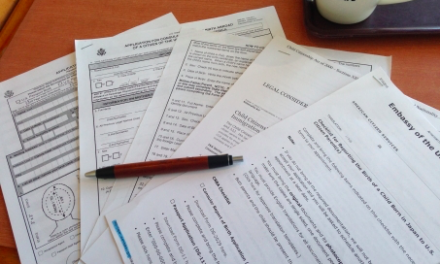Keypoints
- Any kind of discrimination is NEVER okay both legally and morally
- Discrimination at the workplace is prohibited by laws
- You may file civil and criminal suits if you are bullied or discriminated against
In what circumstances may you be discriminated in?
Discrimination at work is getting more people’s attention in Japanese society nowadays, as more news about discrimination at the workplace is reported. Many workers get physically and mentally ill because of persisting discrimination against them. And many of them blame themselves for what is going on, but the problem is in those who discriminate. Also, even if other people say it is not discrimination, if you feel uncomfortable about it, it is discrimination.
Discrimination at the workplace includes the following cases and more:
- Discrimination against foreign people: When foreign people are treated unfairly or wrongly because of their nationalities, language skills, looks, and cultures.
- Discrimination against the disabled: When people with disabilities are not equally treated as able people when it comes to hiring, promotion, retirement, or firing.
- Discrimination against women: when women are not given the same opportunity for work, promotion, and payment as men.
Workplace bullying
Bullying is part of discrimination, and bullies DO exist outside of schools. Workplace bullying is relatively hard to deal with, since bullies are usually in the same or higher positions than the one bullied and so many of them use the excuse of “I was only teaching them” to justify their bullying.
Work bullying includes any kind of verbal, nonverbal, physical, and psychological abuse. Sexual and power harassment are considered bullying as well. Sexual harassment includes sexual comments about you, touching your body, and sexual ridicule and jokes aimed at you. Any activity can be considered sexual harassment if YOU feel uncomfortable about it. Power harassment includes being made to work too long or do too much work, scolded or ridiculed in front of other workers, and evaluated falsely. It can be very difficult for workers to stop the harassment because most of the time, power harassment is conducted by their superiors.
Laws to protect you
There are Japanese laws to protect workers from any forms of discrimination at their workplace.
- 憲法 (kenpou): Constitution. It protects anyone, regardless of their nationality, belief, sex, social status, or family origin. This is applied everywhere, including the workplace.
- 労働基準法 (roudou kijun hou): This law enforces many different kinds of rules at the workplace, including contracts, work hours, holidays, wages, and safety.
- 障害者雇用促進法 (shougaisha koyou sokushin hou): This law is specifically about how to treat abled and disabled people at the workplace. It bans treating workers unfairly because of their disabilities. This includes not only treating them badly, but also treating them better than their abled coworkers.
- 男女雇用機会均等法 (danjo koyou kikai kintou hou): This law is specifically about how to treat men and women at the workplace. It bans treating workers unfairly because of their sex. When hiring, training and promoting, men and women need to be treated equally.
What you can do when you are discriminated against
If you are bullied or discriminated against by your coworkers, you would feel less willing to work with them. You can talk to your boss about what is happening and ask your boss to tell the bullies to stop. However, as you can imagine, it does not work as well as you would hope. Your boss might not take it seriously, or your coworkers might not listen. So what exactly should you do to end your nightmare? Here are three methods you can take:
- Change your job: One thing you could do is change where you work. By changing your workplace, you won’t have to see or worry about the evil coworkers again.
- Apply for a position at another department: For many people, starting a new job is a hard thing to do. In this case, changing your position at the same workplace is helpful. Even if there is no position to apply to, you could talk to your boss about it and he or she might be able to make a position for you.
- Use the power of the law: Talk to a lawyer about the situation. You could also rely on 労働基準監督署 (roudou kijun kantoku sho) or the Labour Standards Inspection Office. You can file a civil suit, and depending on the situation, you may file a criminal suit as well.
There are ways to change the situation. Even though it might be scary to take action, you should consider available options, including the above three, in order to protect yourself.
Do something
If you are discriminated against, it may be hard to tell other people about it. You might worry about what other people are going to think about or say to you, or you might just be hopeless about the situation gettingt better. However, you have a right to be treated fairly at your workplace, and there are laws protecting your right. So, consider taking action to change the situation for a better working life.





